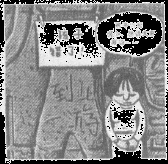题目内容
Visitors not to touch the exhibits.
A. will request B. request
C. are requested D. are requesting
A. A general sleep rule. B. The importance of sleep. C. A funny sleeping example. D. Different levels of sleep. E. The time we need for sleep. F. Different states of sleep. |
1.
Sleep, as we know, is important to us because it helps restore tired organs and tissues in our body. But how much sleep do we actually need?
2.
For most of us, eight hours seems to be about the right amount. Yet we know that there are a great many people who get along perfectly with less sleep and some who may even need more. A great deal depends on the way we live. But a good general rule to follow is to sleep as long as we have to in order to feel happy and be able to work at our best when we are awake.
3.
There are actually different levels of sleep. There is a deep sleep and a shallow sleep. In a shallow sleep our body does not get the same kind of rest as it gets in a deep sleep, so that after eight hours of a shallow sleep we may still feel tired. But a short deep sleep can be very restful.
4.
Alexander the Great was able to get a deep sleep whenever he needed it. Once, during the night before an important battle, he remained awake longer than anyone else. Then he wrapped himself in a cloak and lay down on the earth. He slept so deeply that his generals had to wake him three times to give command to attack!
5.
Normally when we go to sleep, our “ sleep center” blocks off nerves so that both our brain and our body go to sleep. One prevents us form wanting to do anything and the other makes our internal organs and limbs go to sleep. But someone will fall asleep (brain sleep) and keep on marching, because his body is not asleep!



 ? I’ll give each of them only
? I’ll give each of them only  ager did not know how to make money, but the assistant did.
ager did not know how to make money, but the assistant did.